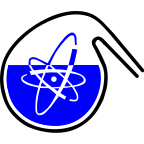Speaker
Description
Experimental research on active materials often goes along with the generation of compositionally complex waste streams for which a suitable route towards safe (interim) storage is lacking. This has worldwide resulted in the accumulation of significant volumes of highly diverse types of waste. The complexity of the streams invokes the need for tailored solutions for the individual components. At different nuclear laboratories across Europe (NRG, SCK.CEN, CEA, Halden reactor), a research irradiation programme on advanced nuclear fuels, including fuel concepts as Accident Tolerant Fuels, Fast Reactor Fuels and Molten Salt Fuels, is running. Within this programme various nuclear fuels have been/are being /will be irradiated at different conditions. Research on possible reuse but mainly final disposal of the spent fuel is an important part of the new nuclear fuel concepts. A prerequisite for any route is that the waste form can be accepted by the national organizations for waste disposal.
At NRG, research on molten salt reactor (MSR) fuels is ongoing. A part of the research is dedicated to waste handling following irradiation experiments in the HFR Petten. The created spent fuel waste will be finally disposed by the national organization for waste disposal (COVRA). To get this new waste accepted, it must be first fully characterized and it is foreseen that the fluoride waste must be transformed to chemically stable and acceptable waste streams (e.g. oxides and cementable waste).
It is foreseen that if new forms of waste are offered for disposal, additional tests related to final disposal are required; the chemical stability of the immobilized waste forms, most notably cemented waste, must be tested by specific leaching experiments to meet the waste acceptance criteria.
A comprehensive literature survey has been done to summarize the possible ways of handling the MSR waste including molten salt specific challenges (such as radiolysis leading to fluorine gas formation). Based on the review, different routes have been identified for experimental cold tests. Simulated fuels will be prepared to perform “semi” hot tests to validate the procedures. The proposed and tested route for waste handling will be finally applied at NRG to irradiated and fully characterized MSR fuels.

